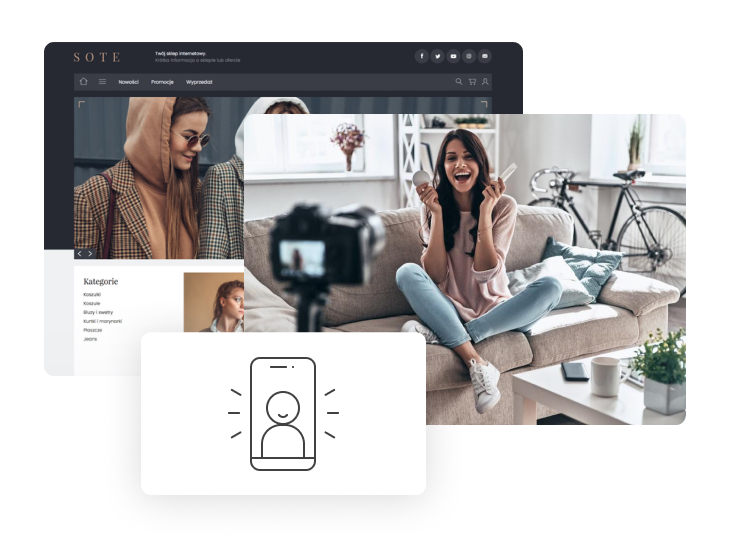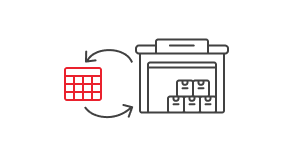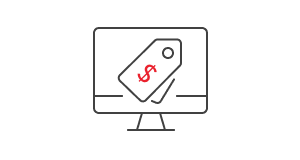Who are influencers, bloggers, YouTubers, vloggers, shoppers, and how much does promotion in social media cost?
With the development of the e-commerce industry, new terms appear to describe different people, such as: influencer, shopper, blogger, vlogger, YouTuber. Find out what they mean and how to use this knowledge in an online store.

- What does: influencer, blogger, YouTuber, vlogger, shopper mean?
- How much does product promotion cost?
- How much does a shopper earn?
- Cooperation with bloggers, how much does it cost?
Start your SOTESHOP online store for free for 14 days.
Check out the new version of SOTESHOP 8.
What does: influencer, blogger, YouTuber, vlogger, shopper mean?
Let's look at the definitions in the e-commerce dictionary. Let's get to know the general meaning of the individual terms in the e-commerce industry.
Influencer
Influencer - a person with the ability to influence potential buyers of a product or service by promoting or recommending items on social media. Influencers are often paid by companies, receive products, product samples from contractors. Celebrities become natural influencers, whose behavior, lifestyle, use of selected brands, products, services shapes the needs and behaviors of the consumer market.
Definition in the e-commerce dictionary: Influencer
Blogger
Blogger from English "a person running an internet diary (blog)". Blogs are categorized, tagged and usually archived texts, i.e. entries, published on a website in a repeatable layout, sometimes a combination of text and graphics, photos, rarely video materials. Most often, subsequent entries allow readers to comment on the blog.
Definition in the e-commerce dictionary: Blogger
Youtuber
Youtuber 1. - creator of audio-visual materials posted on the internet website YouTube or a person transmitting direct audio-visual transmission, usually with live commentary, 2. - a person professionally or amateurishly conducting publishing activity on YouTube, most often placing products, services in their own audio-visual materials for marketing purposes, e.g. promotion, advertising for the client.
Definition in the e-commerce dictionary: Youtuber
Vloger
Vloger from English vlogger - creator of audio-visual materials presenting their own opinions, ideas, in the form of a video diary (vlog, video diary), posted in social media and services enabling publishing of original content, especially on the internet website YouTube.
Definition in the e-commerce dictionary: Vloger
Szoper
Szoper from English shopper - 1. "a person shopping in a store", 2. - a person shopping in a store on the customer's request. The shopper may, but does not have to be a consumer. The shopper is not a courier or a driver delivering purchases.
Definition in the e-commerce dictionary: Szoper
How much does product promotion cost?
For many influencers, promoting products is a very important and often significant element in the budget. Increasingly, these promotions are backed by specialized companies that try to negotiate the best terms for their client. Having an awareness of industry rates and comparison of different social media platforms, it will be easier for us to estimate the costs.
An influencer is not a celebrity. They don't have to be known from TV screens. For them, the confirmation of popularity is the reach in social media and the amount of interactions that account for credibility. If a person is less popular, it doesn't mean that it's not worth working with them. The key is that what they do should fit our industry.
The most expensive promotion is on YouTube, the rates are even 10x higher than on Instagram. This is related to the fact that on YouTube we keep users for longer, and the effectiveness of such promotion is much greater. Influencers gain fans the fastest on TikTok, but their engagement is very low, and consequently, the cost is lower.
Rates for promoting products vary depending on the platform. Below is a comparison of rates determined based on the number of fans (followers/subscribers). Price in USD per 1000 fans for a given profile on the international market.
- YouTube: 100 USD (10% of the number of fans)
- Instagram: 10 USD (1% of the number of fans)
- TikTok: 2.5 USD (0.25% of the number of fans)
Source: Artlist.io
Rates in individual countries may differ, but the percentage share is similar. For the Polish e-commerce market, one can assume a starting rate of 100-200 PLN - for a post promoting our offer on a channel with 1000 subscribers on YouTube.
Often influencers offer promotion on multiple platforms, so it's worth knowing these comparisons and differentiating costs depending on the platform. In addition to the above costs, the cost of preparing materials is usually added - such a price is set individually.
How much does a shopper earn?
Shopper work became popular during the pandemic, when some people couldn't do shopping. Even if they were friends or family and we did the shopping for free, in a sense we became shoppers. More and more people are starting to take it seriously and offer shopping services to others. This applies to both traditional stores and online stores. Some online stores also offer virtual "shopper" services.
Find out more: How much does a shopper earn?
Cooperation with bloggers, how much does it cost?
We have an additional bonus when collaborating with bloggers compared to promotion only in social media - better positioning of our website. Every link leading to our website increases its value. The weight of the links is not always the same, the key factors are: the domain ranking from which the link leads and the content matching of the page. If an article about our offer appears on the blog and there are other articles from our industry, this is exactly what we are looking for.
Taking into account the importance of the link, we cannot forget about it!
In social media, the number of fans and their activity is taken into account in the price, in the case of a blog, the key data are from Google Analytics - the number of visits and the time spent on the page. Additionally, these data are measured over a longer period, e.g. 3-6 months. Bloggers often also manage their social media profiles and often adding a new article to the blog is associated with adding information in social media, which of course can, but does not have to be included in the budget.
In the case of bloggers, the price for promotion is individual, but it is worth supporting the above data on the costs of promotion in social portals - this will give us a better starting point.
Set up your SOTESHOP online store for 14 days for free.
Check out the new version of SOTESHOP 8.
Related Pages


